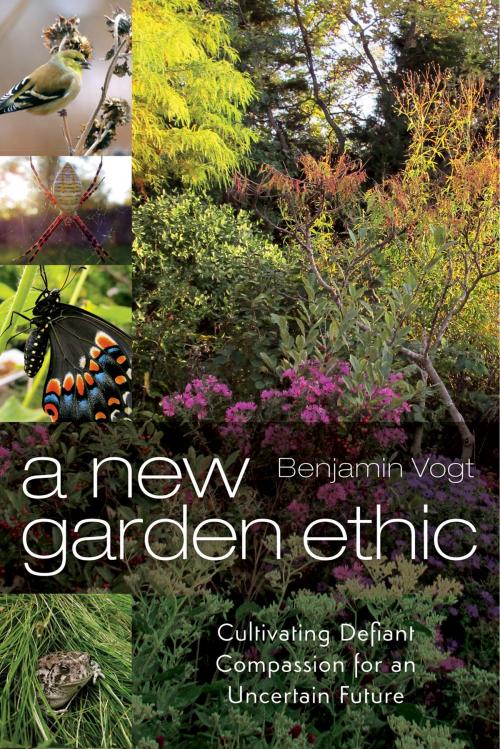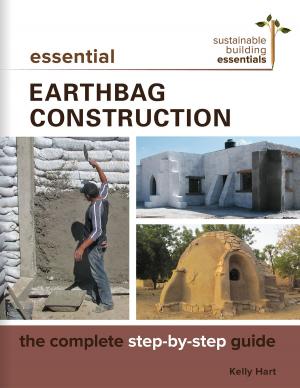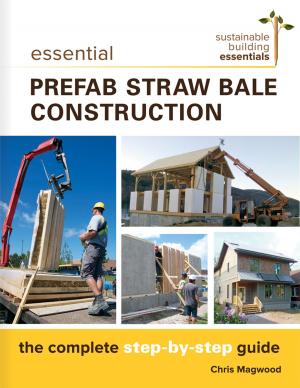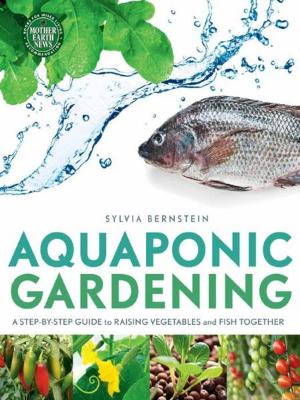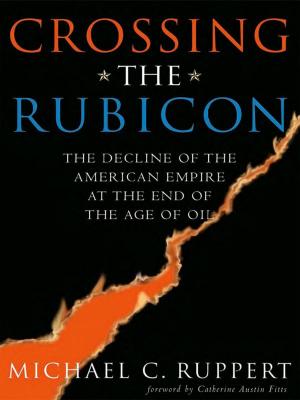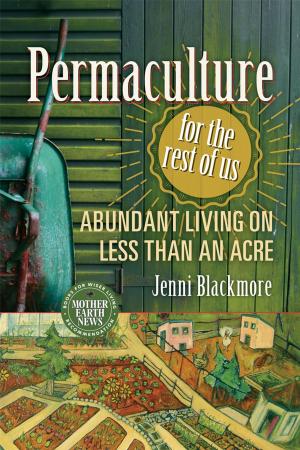A New Garden Ethic
Cultivating Defiant Compassion for an Uncertain Future
Nonfiction, Science & Nature, Science, Earth Sciences| Author: | Benjamin Vogt | ISBN: | 9781771422451 |
| Publisher: | New Society Publishers | Publication: | September 8, 2017 |
| Imprint: | Language: | English |
| Author: | Benjamin Vogt |
| ISBN: | 9781771422451 |
| Publisher: | New Society Publishers |
| Publication: | September 8, 2017 |
| Imprint: | |
| Language: | English |
Our landscapes push aside wildlife and in turn diminish our genetically-programmed love for wildness. How can we get ourselves back into balance through gardens, to speak life’s language and learn from other species?
Plenty of books tell home gardeners and professional landscape designers how to garden sustainably, what plants to use, and what resources to explore. Yet few examine why our urban wildlife gardens matter, and not just for ourselves, but for the larger human and animal communities.
Author Benjamin Vogt addresses why we need a new garden ethic, and why we urgently need wildness in our daily lives—lives sequestered in buildings surrounded by monocultures of lawn and concrete that significantly harm our physical and mental health. He examines the psychological issues around climate change and mass extinction as a way to understand how we are short circuiting our response to global crises, especially by not growing native plants in our gardens. Simply put, environmentalism is not political, it’s social justice for all species marginalized today and for those facing extinction tomorrow.
By thinking deeply and honestly about our built landscapes, we can create a compassionate activism that connects us more profoundly to nature and to one another.
Benjamin Vogt is a writer and photographer whose work has appeared in over sixty publications. He writes a native plant garden design column at Houzz.com and speaks nationally on sustainable design and wildlife landscapes. He’s the owner of Monarch Gardens, a prairie garden design firm, in Eastern Nebraska.
Our landscapes push aside wildlife and in turn diminish our genetically-programmed love for wildness. How can we get ourselves back into balance through gardens, to speak life’s language and learn from other species?
Plenty of books tell home gardeners and professional landscape designers how to garden sustainably, what plants to use, and what resources to explore. Yet few examine why our urban wildlife gardens matter, and not just for ourselves, but for the larger human and animal communities.
Author Benjamin Vogt addresses why we need a new garden ethic, and why we urgently need wildness in our daily lives—lives sequestered in buildings surrounded by monocultures of lawn and concrete that significantly harm our physical and mental health. He examines the psychological issues around climate change and mass extinction as a way to understand how we are short circuiting our response to global crises, especially by not growing native plants in our gardens. Simply put, environmentalism is not political, it’s social justice for all species marginalized today and for those facing extinction tomorrow.
By thinking deeply and honestly about our built landscapes, we can create a compassionate activism that connects us more profoundly to nature and to one another.
Benjamin Vogt is a writer and photographer whose work has appeared in over sixty publications. He writes a native plant garden design column at Houzz.com and speaks nationally on sustainable design and wildlife landscapes. He’s the owner of Monarch Gardens, a prairie garden design firm, in Eastern Nebraska.
